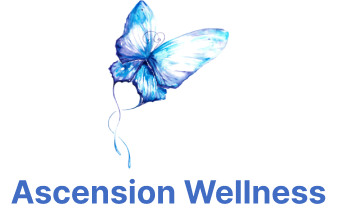From people pleasing in hopes of acceptance to carrying garlic to ward off the emotional vampires, who you call ‘friend’ can have a huge impact on your healing and personal development.
We’re all at least somewhat familiar with relationship wounds, usually in the context of parents and spouses or significant others. Have you ever given much thought to the ‘friendship wound’ though?
At its heart, the friendship wound stems from our challenges with creating and maintaining meaningful relationships that are also safe.
Take a moment to consider who your closest friends are….
How did you meet?
What were the circumstances that led to a developing friendship?
How close are you really, as in… do you feel you can truly rely on them, trust them?
And to what degree?
Do you feel confident these friendships can withstand the inevitable bumps in the road?
An aspect that many don’t consciously consider yet subconsciously may deter many from pursuing deep healing is the impact that your personal evolution may have on your relationships, including friendships. We form friendships as a certain version of ourselves. Some of those friendships may be more superficial and when we start growing, a.k.a. changing, we may not click with certain people the way we once did.
However, if it’s an authentic connection, with our true self in relationship with their true self, then they will tenaciously and proudly journey with us as we heal and grow. Those friendships may deepen as we gain increasing access to our authenticity and as trust with one another deepens.
Then there are those friendships that begin to crack. Our emerging authentic self is calling forth their authentic self that they may not be ready to reckon with. If they are cozy and comfy where they are, with no interest in personal development, then our shifts can feel threatening.
While healthy, trustworthy friends can feel like a lifeline during our healing journey, the most important friendship you can ever develop is with yourself. Working to become the friend to yourself that you need, that perhaps you’ve never had, that has your back no matter what.
You’re molding a template from which other healthy friendships can develop over time. This template helps remind you of what healthy feels like, looks like, and what realistic expectations might be. Most importantly, this template would be based on your true SELF, and not the old mask-wearing versions of you.
The template that is the go-to for most of us resembles some version of our relationship with one or both of our parents. While this is especially true of significant others, it’s also true of every relationship type. If you look for it, you’re sure to find that all your friends have some resemblance to your parents!
Now, depending on who your parents are, or rather, where they are in their healing and personal evolution, that doesn’t have to be a bad thing. For many of us though, childhood was not always the healthiest because, in part, our parents weren’t the healthiest.
Even if they were though, upgrading that relationship template is a critical milestone of adulting, whether that’s at 18 or 77. It’s never too late to choose you.
Learn more about the Friendship Wound on my podcast, Common Resilience.
The Friendship Wound, Part I https://youtu.be/qSouiCkE-dk
The Friendship Wound, Part II https://youtu.be/nlya2Ph6Kzk
Be sure to hit Subscribe so you never miss an episode!
Leave comments! We want to know what the episodes bring up for you.

